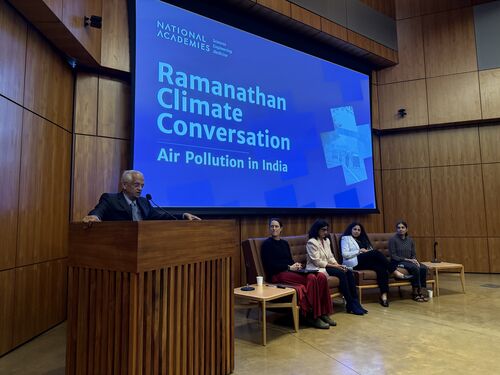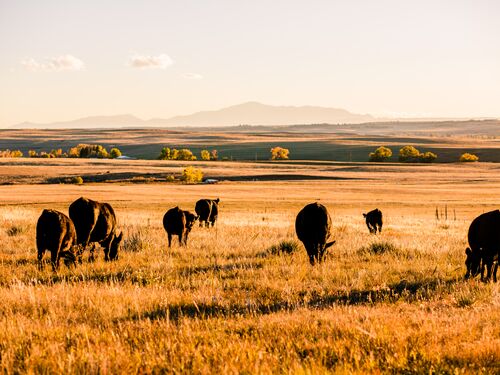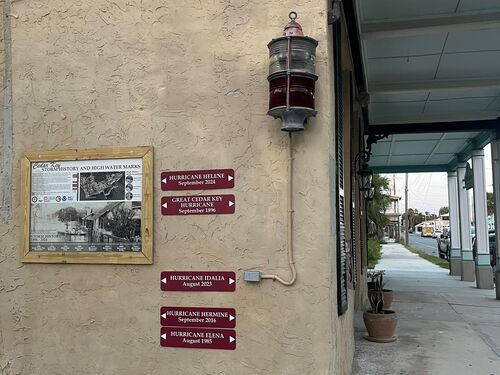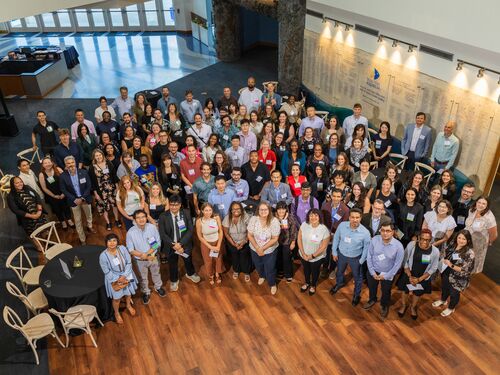National Academies' Gulf Research Program Announces 2020 Class of Science Policy Fellows
Program News
By Stephanie Miceli
Last update July 29, 2020
WASHINGTON — The Gulf Research Program (GRP) of the National Academies of Sciences, Engineering, and Medicine today announced the nine recipients of its 2020 Science Policy Fellowships. Beginning Sept. 1, 2020, fellows will spend one year on the staff of federal and state government agencies, public health departments, and nonprofit organizations in the Gulf of Mexico region.
Fellows will contribute to a number of initiatives at the intersection of science, policy, and natural resource management. Projects might include incorporating affordable housing into disaster planning; researching handicap access or coastal erosion at public beaches; analyzing the economic impacts of heat events; and engaging private landowners in the restoration of fish and wildlife habitats.
“As scientific knowledge changes, policy changes with it, and this connection has never been more important,” said Anna Martin, GRP program coordinator. “Fellows have a unique opportunity to apply a policy lens to their scientific work — and present scientific evidence that underpins policy.”
The nine fellows bring to the program extensive experience in research design and evaluation, teaching, volunteerism, and their personal passions for health equity, environmental justice, and community resilience.
“The GRP seeks to enhance offshore safety, environmental protection, and the health and resilience of its communities. We are excited that our science policy fellows will tackle these societal issues in the Gulf region,” said Lauren Alexander Augustine, GRP executive director. “The Science Policy Fellowship exposes them to new career possibilities, hopefully for the long-term, to improve human health, the environment, and the economy for future generations in the Gulf Coast region.”
Now in its fifth year, the fellowship program has a network of almost 50 alumni. It supports the development of scientists from a range of scientific disciplines — including social and behavioral sciences, health sciences and medicine, engineering and physical sciences, and earth and life sciences. Beyond gaining rigorous work experience, fellows receive a mentor and access to training and professional development.
Bios are available here. The nine recipients of the 2020 Science Policy Fellowships are:
Hanna Bauer
M.S. (Oceanography and Coastal Science), Louisiana State University
Host Office: Texas Parks and Wildlife, Coastal Fisheries
Jeanne Bloomberg
M.S. (Oceanography and Coastal Science), Louisiana State University
Host Office: National Oceanic and Atmospheric Administration (NOAA) RESTORE Science Program
Simone Chapman
M.S. (Natural Resources: Environmental Conservation), University of New Hampshire
Host Office: Tampa Bay Regional Planning Council
Rachel Correll
Ph.D. Candidate (Environmental Sciences), Louisiana State University
Host Office: Houston Applied Research Center
Stephen Formel
Ph.D. Candidate (Ecology and Evolutionary Biology), Tulane University
Host Office: NOAA’s National Centers for Environmental Information
Ellen Kujawa
M.Sc. Candidate (Water Science, Policy, and Management), University of Oxford
Host Office: The Data Center
Carey Schafer
M.S. (Marine Science), University of South Florida
Host Office: U.S. Fish and Wildlife Service
John Schiff
Ph.D. Candidate (Geosciences), Texas A&M University
Host Office: Bureau of Ocean Energy Management
Jennifer Summers
Ph.D. Candidate (Ecology and Evolutionary Biology), University of Tennessee, Knoxville
Host Office: Gulf Coast Ecosystem Restoration Council
To learn more about the Gulf Research Program’s Science Policy Fellowships, visit nationalacademies.org/gulf/fellowships-and-grants/science-policy-fellowship.
The National Academies' Gulf Research Program is an independent, science-based program founded in 2013 as part of legal settlements with the companies involved in the 2010 Deepwater Horizon disaster. It seeks to enhance offshore energy system safety and protect human health and the environment by catalyzing advances in science, practice, and capacity to generate long-term benefits for the Gulf of Mexico region and the nation. The program has $500 million for use over 30 years to fund grants, fellowships, and other activities in the areas of research and development, education and training, and monitoring and synthesis. Visit nationalacademies.org/gulf/gulf-research-program to learn more.
The National Academies of Sciences, Engineering, and Medicine are private, nonprofit institutions that provide independent, objective analysis and advice to the nation to solve complex problems and inform public policy decisions related to science, technology, and medicine. The Academies operate under an 1863 congressional charter to the National Academy of Sciences, signed by President Lincoln. For more information, visit nationalacademies.org.
Follow us:
Twitter @theNASEM, @NASEM_Gulf
Instagram @thenasem
Facebook @NationalAcademies, @NASEMGulfResearch
Contact:
Stephanie Miceli, Media Relations Officer
Office of News and Public Information
202-334-2138; e-mail news@nas.edu
More like this
Discover
Events
Right Now & Next Up
Stay in the loop with can’t-miss sessions, live events, and activities happening over the next two days.
NAS Building Guided Tours Available!
Participate in a one-hour guided tour of the historic National Academy of Sciences building, highlighting its distinctive architecture, renowned artwork, and the intersection of art, science, and culture.



